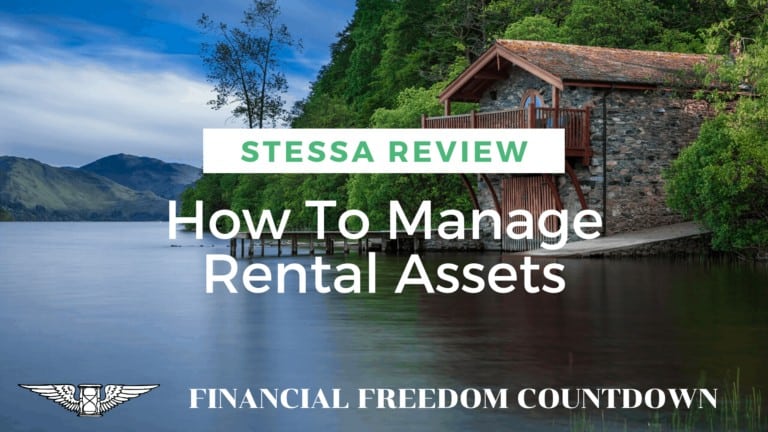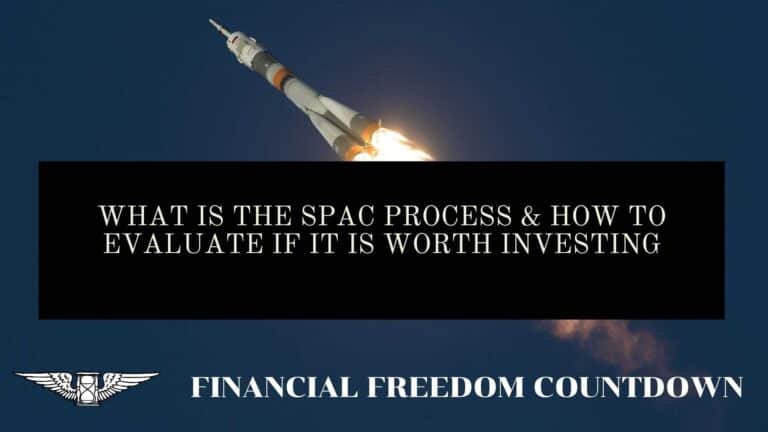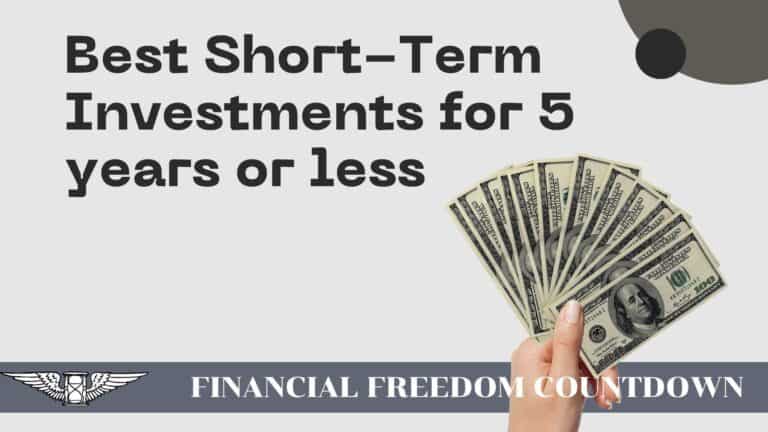Infinite Banking Concept – Using Life Insurance To Become Your Own Bank
Are you tired of relying on banks and traditional investments to grow wealth? Infinite banking is often sold as a powerful financial strategy that uses life insurance policies to build wealth. By becoming your own banker, you create cash value while using tax-free loans from your policy as capital for further investment opportunities. Let us look closer to see if infinite banking truly delivers on its promise and what the pitfalls are.
Basics of the Infinite Banking Concept
Infinite banking allows you to become your own bank by borrowing against the cash value of a permanent life insurance policy. Invented by economist Nelson Nash in the 1980s, infinite banking allows you to access the dividend payouts within your life insurance policy to borrow tax-free from yourself and pay back whenever convenient! The term “banking with yourself” is synonymous with Infinite Banking.
Infinite banking is the OG of the Buy-Borrow-Die strategy with some tweaks. With infinite banking, your investments are inside the life insurance policy, allowing you to borrow against it without significant tax consequences. Also, since a margin call doesn’t exist, as with brokerage accounts, you don’t need to return the money immediately.
The basic features which make Infinite Banking attractive are
- Tax-sheltered growth since the dividends and guaranteed growth promised occur inside an insurance policy.
- Benefits of insurance for life events such as death and disability.
- Shielded from volatility since life Insurance companies invest in assets different from stock markets.
- Loans are tax-free since you are borrowing against your insurance policy.
Insurance Policies Suitable for Infinite Banking
A life insurance policy aims to pay out a set amount of money to your beneficiaries in the event of your death. There are many life insurance policies; the two most common are term and whole life insurance.
A term life policy has the lowest premiums and is created for a specific period. Typically you would use a term life policy when you are the only source of income for your family. Once you retire and no longer earn money, there is no need to maintain a term insurance policy. The term policies are best utilized when you have high human capital or have a 7 figure job.
Infinite Banking is possible only with a whole or universal life insurance policy. Besides the administrative expenses, the premiums you pay are used to provide the survivor benefits, and also a portion of it is invested in income-producing assets.
The income generated within the universal or whole life insurance policy creates the cash component, which can be withdrawn if needed or depleted if you cannot pay your premium.
However, in theory, the cash value can be borrowed. A universal or whole life insurance policy offers various flexible benefits that other life insurance policies do not.
This is where the infinite banking concept comes into play. You can contact your life insurance company to borrow the money, then potentially repay it later. Remember, this is your money, and you can work out the repayment terms with your insurance company, including interests, fees, and more.
As long as you are meeting whatever requirements your insurance company places, you are able to use this money and repay it however you see fit.
Although whole life insurance might seem better than a term policy, remember the premiums are much higher. So it is a form of forced savings for people who could be better at saving money or sticking to a budget.
Indeed, one of the key uses of the infinite banking concept is to gain access to seed money, like many entrepreneurs pursuing venture capital. In a world where access to funding is getting increasingly tricky and interest rates are rising, dramatically increasing the costs of borrowing money, the infinite banking concept may provide you with the alternative you need.
The cost of whole-life policies’ internal expenses and agent commissions is primarily linked to the permanent death benefit it acquires. Agents knowledgeable about this can lower the price by selecting the least allowable death benefit amount that fits your desired premium amount (within the set IRS limits). In addition, incorporating the highest amount of eligible term insurance riders can decrease the overall cost and agent commissions.
How Does Infinite Banking Work
The idea behind the infinite banking concept is that you borrow from yourself. Since whole life insurance policies and universal life insurance policies are the only type of insurance policies that allow this, you need either of these policies. Once you make a policy loan, you can transfer the money directly into your bank account, giving you cash flow and access to the funds.
Remember that the infinite banking concept works best when you borrow against a universal or whole life insurance policy with a guaranteed growth rate and dividends. This way, the fund is constantly being replenished, giving you a source of cash to borrow against. Of course, if you remove money from the fund, you may lose out on future growth.
You will have to speak with your insurance company or insurance agent to determine the specifics about borrowing against the cash value of your life insurance policy. Different policies may have additional limitations or minimum requirements. Some insurance policies may not allow you to do this at all. If you want to take advantage of the infinite banking concept, you’ll want to check into the specifics of any policy and ensure they even offer this benefit.
If you have a term life insurance policy, you won’t be able to take advantage of the infinite banking concept. This is because term life insurance policies are, by design, much more limited. You will pay lower rates, but in exchange, you will lose out on the guaranteed cash value component of a whole or universal life insurance policy.
How Do I Start Infinite Banking
If you want to pursue the infinite banking concept, there are a few things you will need to do to position yourself for success and to maximize the financial benefit.
Buy a Whole or Universal Life Insurance Policy
You will need a whole or universal life insurance policy. Also, you’ll want to ensure that that policy’s cash value is set up to generate the maximum return on investment.
Buying a policy that will work for you and your family would be best. Unfortunately, it can be far too easy for individuals to buy a policy with financial penalties, limit the amount of money they can withdraw, increase administration fees, or reduce financial guarantees. If that happens, infinite banking costs you more money than you can use.
Get a High Cash Value
Many whole and universal life insurance policies offer you a minimum growth level in addition to the dividends that the policy generates. If you want to use the infinite banking concept at some point, you will want to ensure that you have a guaranteed growth rate as high as possible.
Pay Higher Premiums Early
It would help if you also considered making the maximum possible payments as early as possible, setting up a situation where you leave as much money as possible available for a future withdrawal. Remember that fully funding your policy beforehand may mean less cash to invest in other assets. This consideration must be part of your cost-benefit analysis when deciding if the infinite banking concept is worth it.
Repay Loans Quickly
Finally, if you use this concept and seek to withdraw money from your account regularly, ensure you repay the loan as quickly as possible. It not only ensures that you are protecting your policy but enables you to get your money back and begin to, once again, reap the benefits of the cash value component of your policy. From there, you can turn your life insurance policy into a personal revolving loan fund that you can draw from whenever you need it.
If the infinite banking concept is one of the primary goals of purchasing a life insurance policy, you must ensure you buy the right one early. This can be difficult, as you don’t know if you will use infinite banking when purchasing a policy. However, upgrading your whole or universal life insurance policy may be possible later. As in many financial decisions, time is your enemy: If you know this may be a concept you will use, you must make adjustments as early as possible.
Advantages of Infinite Banking
Ease of Borrowing
The Infinite Banking strategy means you are simply borrowing against your own money. This is a crucial difference since the amount you borrow is ultimately limited by what you need and how much cash value exists in the life insurance you have purchased for yourself. Also, unlike home equity loans which need to be used for specific purposes, you can use the cash value proceeds for anything you want as long as you qualify.
Borrowing against assets is also possible, where you can take a loan against your 401(k) to buy a starter home. Of course, the IRS has rules that govern the maximum loan amount, but the concept is similar: you repay the loan with interest to your 401(k).
One can also borrow against real estate using the cash-out refinancing provisions. However, stocks and real estate prices often fall when individuals need money the most, such as during a recession. During periods of downturn, although one can obtain loans against stocks and real estate, the value you get from these assets would be lower.
Cash value in a life insurance policy should not be co-related to economic woes.
Potential Source of Emergency Funds
Since you are borrowing against your own money and the money you already have put away, you can work with the company that you buy life insurance products from to borrow money. You can then use this money to manage day-to-day expenses in an emergency if you do not have another account with emergency savings.
It’s worth noting that infinite banking can be an outstanding loan of last resort when genuinely needed. Suppose there is a recession, a credit tightening, mass inflation, or other financial disasters. In that case, you may be unable to access needed funds in case of a family emergency or business opportunity.
A properly structured insurance policy can ensure you can access funds quickly and efficiently. You can also do it regardless of the interest or macroeconomic environment, enabling you to gain money when needed, even if all other financial avenues have closed off to you.
Flexible Terms
It’s also worth noting that it is much easier to withdraw money from your life insurance policy’s cash value than get a loan. As long as your life insurance is set up appropriately, you can borrow against your life insurance with no problem. You can set up repayment terms, periods, and more.
Keep in mind that you have to make sure you have a complete understanding of the specifics of your life insurance policy before making such a withdrawal and that you may have to work with your life insurance broker to ensure that any cash withdrawal you make won’t otherwise impact death benefits that your beneficiary receives.
No Impact on Credit Score
Making a withdrawal against the cash value of your life insurance policy won’t impact your credit score. There won’t be any soft or hard inquiries against your credit report. As such, there is no way that your credit score gets damaged when you make such a withdrawal.
Credit Karma partners with Equifax and TransUnion and offers free credit reports and free credit scores updated weekly. It also provides alerts when it detects unusual activity on your credit files. Monitoring your credit report for errors can save you thousands in interest. Sign up to monitor your score for free.
Also, unlike getting a loan, you won’t get denied making such a withdrawal.
Quick Access To Pounce on Opportunities
In theory, you can also use the cash value of a whole-life policy to make even more money than you are already generating. For example, let’s say you were unhappy with the returns your cash value was generating. Alternatively, let’s say you were interested in investing in another profit-generating proposition, like starting a business or buying distressed assets like commercial real estate. You could withdraw the policy’s cash in value rather than withdrawing from a retirement account or seeking a loan. By managing your personal finances this way, you could protect your long-term financial prospects.
The Infinite Banking concept may sound like a brand new one to you, but many famous entrepreneurs – including Ray Kroc, Walt Disney, and J.C. Penny used this strategy to access the initial funding that ultimately made their business empires possible. Of course, investment and borrowing options were quite limited during those times.
Tax Advantages
There are also significant tax advantages of this infinite banking concept. Policy loans are usually tax-free, and while you will absolutely want to double-check that this is the case with a CPA, you can access your own money without paying any additional taxes.
Furthermore, the growth within your whole or universal life insurance is tax-free as well, meaning that you can withdraw money that has been growing tax-free. You’ll need to check your state and local taxes, but you can receive this money tax-free, which may not be possible if you sell stocks or receive a gift.
Asset Protection
Infinite banking can provide enhanced asset and creditor protection that other loans or investments can’t. Some states protect the cash value and death benefits of a whole or universal life insurance policy from creditors, even in bankruptcy. That’s not to say that the investments are still protected even if you pull them from your policy, but it does mean that you can have some form of a protected financial asset if everything goes wrong in your financial life. Discuss the possibilities with an attorney when creating a revocable living trust to protect your other investments.
Trust & Will provides state-specific trusts for the protection and transfer of your most important financial assets. You can also nominate legal guardians for your children to make sure they are looked after by someone you know and trust, in case something happens to you.
Death Benefits When Alive
The death benefit of the life insurance company protects your family’s financial situation after your death. Some whole life insurance companies have a provision that allows you to access your death benefit tax-free if you become too sick or injured to function without help. You don’t have to die to use your insurance policy’s death benefit amount. Some insurance companies offer this option as a paid feature, while others may provide it for free as a rider on the policy.
Disadvantages of the Infinite Banking Concept
In many ways, these life insurance loans are ideal, and you can use them for any purpose that you see fit. However, it is critical to remember that the disadvantages – including lost opportunity – are genuine.
Opportunity Cost
In many cases, your life insurance policy will – with your permission – take the money you use for the cash balance of the life insurance policy and invest it. As a result of their investment, you may see a substantial gain in your portfolio. You can then use this money however you choose and potentially add to the death benefit that the beneficiaries of your life insurance policy will ultimately receive.
If you borrow against this cash value, using the infinite banking concept, that money may be gone forever. More importantly, you may have less money to invest, which means a significantly reduced nest egg, death benefit, or profits.
That’s not to say it is better to borrow from a bank and discard the apparent advantages of infinite banking concepts, including reduced fees and non-existent interest rates. However, borrowing against the cash value of your life insurance policy may ultimately cost you gains in the stock market, meaning that infinite banking concepts may be more expensive than a properly structured loan from traditional banks.
Reduced Death Benefits
Next, you must examine how infinite banking concepts may damage insurance coverage. Various policies may have different structures regarding your cash value, and you must consider how borrowing this money may impact your total financial future. Fortunately, your insurance agent should be able to answer any questions you may have about borrowing this money, and you should make sure you have a comprehensive understanding of how borrowing this money may impact your death benefits, dividend payments, and entire cash position within the whole life insurance policy.
High upfront costs
Insurance companies use a front-loaded cost structure to cover their expenses for whole life insurance, a bundled investment, and insurance product.
Lack of Liquidity in Early Years
When you begin an infinite banking life insurance policy, you may initially experience reduced available funds. Within 30 days of the first premium payment, you can typically only access 66%-85% of it. Note that some policies prioritize high early cash value but may not perform as well as the top-performing Whole Life policies in the future.
Cash value takes some time to build up. So you will be unable to access the benefits of infinite banking in the early years.
High Upfront Investment
Infinite Banking concepts work best when we give compounding sufficient time to work. It would be best to front-load all the policy premium payments in the early years.
Mandatory Annual payments
A minimum annual or monthly premium payment will be required for the first 5-7 years, despite some flexibility that can be built into the policy to achieve the reliable guarantees of a Whole Life policy for infinite banking. Although agents may promise options for flexibility, it is crucial to understand that a minimum premium commitment is necessary. If you do not pay your premiums, your policy may lapse, and you might no longer have the benefits of the whole life insurance policy.
Health Requirements To Qualify
Although the Infinite Banking concept is focused on the financial aspect, the whole life insurance policy is an insurance product. It would be best if you were in good health to qualify for the policy. The premium payments are often dictated by when you buy the policy, your health status, your family health history, your driving record, your risky hobbies, and a host of other factors.
Appropriate Policy Purchase
You also need to make sure that your whole life policy even has such an offering. While many whole life insurance policies allow you to withdraw for cash flow or investment purposes – or even if you get into financial trouble – this is not always the case.
Indeed, many life or mutual insurance companies have prohibitions or limitations against when you can borrow this money. As such, you should ensure that withdrawing cash for these purposes is even financially possible.
Early Funding Needed
It’s also worth noting that the infinite banking policy will only work for you under the right financial decisions—chief among these decisions: time or money. A few things need to happen to maximize the amount of money you can borrow against your whole life insurance policy. You’ll either have to have the policy for a long enough period so that you already have a heavy cash value, or you’ll have to have max funded the policy to the point that you have enough in it to borrow against it. While this can work for you in either of these two circumstances, it means that newer policyholders may not have enough equity to make the infinite banking concept work for them.
High Fees
Furthermore, some people prefer to avoid the whole or universal life insurance policy. Many individuals seek instead to purchase term life insurance, believing that the reduced costs are preferable to the administrative fees that come with whole or universal life insurance. While whole or universal life insurance comes with advanced benefits and a guaranteed growth component, the reduced costs of term life insurance may leave an individual with more money for investments elsewhere.
Loss of Other Investment Opportunities
Finally, while the infinite banking concept may be a critical component of any perpetual wealth strategy, there are also financial disadvantages. As noted above, whole life companies’ insurance policies mean you will pay more for insurance premiums. It may be a better financial strategy for you to purchase term insurance. Term insurance is almost always less expensive than universal or whole life insurance policies.
You can then invest the difference in a traditional bank account, the stock market, or real estate. You can generate greater returns depending on a variety of factors, including the investment success of your plan. As interest rates rise, you can generate a higher amount in a savings account, T-Bills, or I-Bonds.
In other words: Don’t think that using the cash value component of your whole life company’s offerings is the best or only way you need to spend money. You should always check with your financial planner before making relevant financial decisions.
Does Infinite Banking Work
Infinite banking is an incredibly useful financial tool for high average net-worth individuals interested in saving on taxes and having quick access to funds. The biggest advantage is the asset protection feature of insurance policies coupled with the lack of an underwriting process.
The strategy is also suitable for individuals with low liquid net worth.
In many ways, borrowing from yourself – as infinite banking concepts allow – can seem ideal. However, just like everything, the risks can outweigh the reward.
Yes, there are many benefits to this type of banking, but you have to do your research and ensure that you fully understand what you are getting into before you sign up for whole-life insurance and begin to borrow money.
With the ease of access to invest in various income-producing assets, you have to decide if it is worth being locked into an insurance policy. Whole life policies come with high surrender value and are hard to unwind if your circumstances change or you no longer wish to continue paying the high premiums.
Index funds provide the ability to invest in much more liquid stocks. And it does not have to be complicated. A diversified low-cost index fund tracking the S&P 500 is a great option.
If you are enticed by the cash flow aspect of infinite banking, dividend aristocrats provide an excellent alternative for investments with monthly income.
M1 Finance has zero fees, very low minimums, automated investment with automatic rebalancing to invest in Index funds or dividend ETFs.
Similarly, investing in real estate also permits one to build wealth and cash out as needed. The entire BRRRR strategy involves taking out your property’s “cash value” and using it to buy another rental property.
Yes, real estate does involve some work with understanding the basics of landlording and evaluating rental properties. Still, you can also outsource some of these activities by turnkey investing or looking at crowdfunded real estate.
There are many paths to achieving financial freedom. Talk with experts, including your financial advisor and insurance agent, and get a comprehensive look at interest rates, your savings account balance, and more. Only through extensive research and speaking with experts, can you get an idea of whether this type of borrowing is worth it.
FAQs on Infinite Banking Concept
How much money do you need for infinite banking?
With infinite banking, there are no hard and fast rules regarding the amount needed to get started. But you must pay the universal life policy premiums for a while before you can reap the benefits. It is not a short-term option since your investments need to grow enough that you have sufficient cash value to take a loan against the policy. Setting aside a portion of your monthly budget for premium payments can be challenging, especially when faced with unexpected events such as a recession or job loss.
Is the Infinite Banking concept legit?
Without question, the infinite banking concept is authentic. But unfortunately for some people, they have been duped after purchasing a poorly-structured Whole Life insurance policy. A whole life insurance policy with high premiums is necessary if you want infinite banking. Although this strategy isn’t false or fraudulent, there may be better financial decisions for some.
Is Infinite Banking tax-free?
Infinite banking offers multiple tax advantages – including paying interest on policy loans, usually tax-free. Meanwhile, the interest earned on whole life insurance policies accumulates without being subject to taxes. Furthermore, your beneficiary will receive the death benefit without any taxation, which is usually exempt from estate taxes too.

John Dealbreuin came from a third world country to the US with only $1,000 not knowing anyone; guided by an immigrant dream. In 12 years, he achieved his retirement number.
He started Financial Freedom Countdown to help everyone think differently about their financial challenges and live their best lives. John resides in the San Francisco Bay Area enjoying nature trails and weight training.
Here are his recommended tools
M1 Finance: John compared M1 Finance against Vanguard, Schwab, Fidelity, Wealthfront and Betterment to find the perfect investment platform. He uses it due to very low minimums and fees, automated investment with automatic rebalancing. The pre-built asset allocations and fractional shares helps one get started right away.
Personal Capital: This is a free tool John uses to track his net worth on a regular basis and as a retirement planner. It also alerts him wrt hidden fees and has a budget tracker included.
Streitwise is available for accredited and non-accredited investors. They have one of the lowest fees and high “skin in the game,” with over $5M of capital invested by founders in the deals. It is also open to foreign/non-USA investor. Minimum investment is $5,000.
Platforms like Yieldstreet provide investment options in art, legal, structured notes, venture capital, etc. They also have fixed-income portfolios spread across multiple asset classes with a single investment with low minimums of $10,000.




